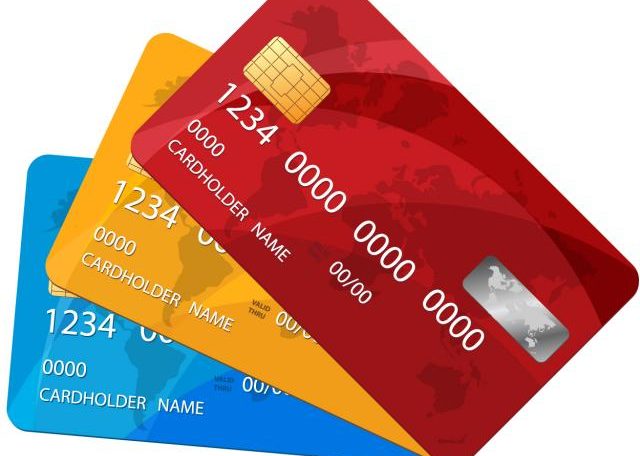
In the present time of immense uncertainty where the COVID-19 pandemic has knocked on our doors uninvited, our ever-developing friendship with technology has helped us to cope with the lockdown and use it to our advantage.
Keeping ourselves entertained, learning new subjects and things, continuing education and work through online means, connecting with our loved ones- everything still goes on, all thanks to the technology advancements. We can also thank it for the various ways it has given us, to use as a means of money. Long gone are the days of cold hard cash being used, now that there are many technologically-advanced methods in the market.
One such essential method is our credit card.
Since the entire world is in a financial fix, it has become more relevant than ever that every one of us keeps a very close check on our expenditure and finds the safest ways to handle our finances. Credit cards can be a great help in making instant purchases in times of need. One can know more about this by finding out what is CVV number. Here are some common mistakes credit card mistakes you must avoid during a lockdown:
1. Not Repaying Your Credit Card Dues
A billing cycle lasts from 28-52 days (depending on your card). If you decide to continue making purchases on your credit card yet delay paying the due amount, it will not only be a massive pile-up in the future. Still, it will also leave you with hefty amounts to pay as an additional charge added to your amount that was initially pending. It also bound to effect your credit score with the bank, harming future possibilities of credit limits and loans.
You should not only pay the minimum amount required, but make sure you settle the full amount to avoid paying extra charges added on the remaining amount. In addition to that, delayed settlements also spoil your credit score and further damage your credit history. Don’t avail for Moratorium options for a credit card due as they lead to debt traps. Instead, go for EMI options as opting for EMI is more comfortable to pay off.
2. Withdrawing Cash
A credit card allows you to withdraw cash from ATMs instantly, however, at a very high cost. There is a fixed price that is charged for any cash advance. The interest charges are as high as 2-4%. Unlike merchant establishments, the interest meter starts from the first day itself. It is a common myth that the cash payment has to be paid after a month, but that is not the case. You are charged interest from the first day after your cash purchase. It is highly advisable to not use credit cards for withdrawing money, since it isn’t even one of its primary uses. A debit or atm card is a much more comfortable option.
3. Maintaining Credit Utilization Ratio
This ratio refers to the proportion of total credit card limit utilized by you. Other credit card mistakes that one must be aware of include exceeding the credit utilization ratio beyond the 30% limit. Cardholders exceeding credit utilization ratio beyond 30 percent are considered as credit hungry. It leads to credit bureaus dropping their credit score by a few points.
Instead, these cardholders should request their card issuers to increase their credit limit, which will help in reducing the credit utilization ratio. To sustain your credit score, you should always try to maintain the credit expenditure within 30%.
4. Utilizing Reward Points
Make sure you don’t let your reward points expire. This is the best time to develop a habit of tracking your reward points. After all, you have earned it! Some cards allow these reward points to be adjusted against the outstanding bill of the map while others allow them for payment of airline tickets, fuel, consumer goods, gift vouchers, etc.
However, reward points of most credit cards come with a pre-determined expiry period of usually 2-3 years; hence you should actively track them (through all your spare time in the lockdown) and use them to your advantage before they expire. Make it a rule of thumb always to remember that the relaxations provided by the banks on payments are only a grace period and not a waiver of the interest or loan, and you will eventually have to pay it back to the bank at some point.
5. Control Your Expenditure
A credit card may be the key to increasing one’s shopping addiction. It is often said that credit cards may offer the false sense of leniency for the user, motivating him to keep buying without worrying about payment, only to end up in deep debt, later.
Avoid buying luxury products from your credit cards if your finances look unstable and inconsistent for the time being and in the near future. Keep your credit card aside to pay in case of any unforeseen circumstances. As a credit card gives you joy while you shop, you might also feel like you got lucky buying a luxury good at a discounted price.
However, do not forget that due to a crippling and unstable economic time we are currently experiencing, everything is available on huge discounts and attractive prices/ there are schemes to lure the buyer. Still, you need to curb your urges and save yourself from such flashy traps. Be futuristic and calculate your expenses before you enter your credit card details and increase your burden of future payments.
6. Do Not Share Your Credit Card Details
It is the most common fraud but cannot be emphasized enough. There are all kinds of agencies trying to scam people through deceptions, and the pandemic is no change of season for them. There are tons of websites that ask for your credit card information simply as a means of gaining entry into their further options, Sharing your details on an unreliable source or over the phone can cost you humongous repercussions, and you should always refrain from sharing your credit card details to prevent it from being misused.





